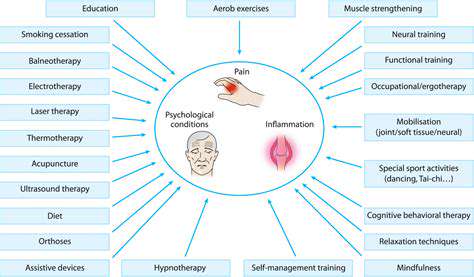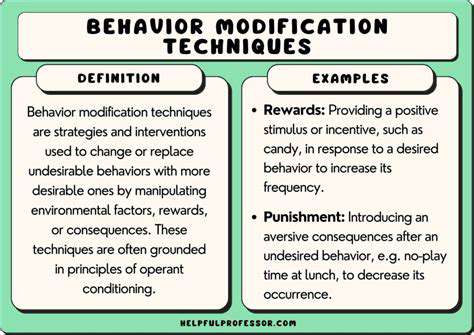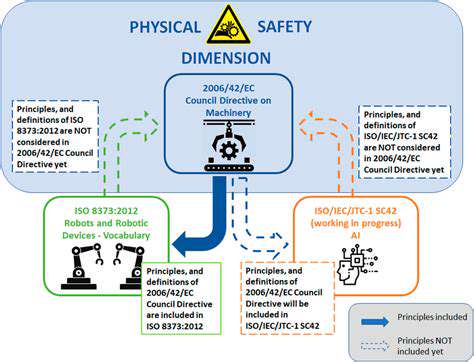Understanding the Link Between Gut Health and Mental Health
The Microbiome's Influence
Our digestive system hosts an astonishingly diverse community of microorganisms, collectively termed the gut microbiome. These microscopic inhabitants perform vital functions that extend far beyond breaking down food. They actively participate in nutrient processing, immune system modulation, and even influence our emotional landscape. When this delicate microbial balance gets disrupted—a condition scientists call dysbiosis—the consequences can ripple throughout the body, affecting everything from digestion to mental clarity.
Cutting-edge studies reveal fascinating communication channels between our gut bacteria and brain function. These microbial communities don't just passively exist in our intestines—they actively shape neural activity and behavioral patterns. This dynamic gut-brain connection emphasizes why nurturing our microbiome is just as important for mental health as it is for physical wellness.
The Nervous System Connection
The gut boasts its own sophisticated neural network—the enteric nervous system—often called our second brain. This self-contained nervous system maintains constant dialogue with our central nervous system through multiple signaling routes. This biological communication highway enables real-time information exchange between digestion and cognition, creating a feedback loop that impacts numerous bodily processes.
When we eat or encounter harmful substances, this intestinal nervous system springs into action. These gut reactions trigger brain responses that then circle back to influence digestive rhythms and secretions. This continuous conversation between gut and brain demonstrates how profoundly intestinal health affects our entire being.
Impact on Mood and Behavior
Groundbreaking research continues to uncover striking links between intestinal flora and emotional states. Patients experiencing anxiety or depression frequently show distinct microbial imbalances compared to mentally healthy individuals. These microbial shifts may actually contribute to mood disorder development, underscoring the gut's role as a potential therapeutic target for mental health interventions.
Dietary Influences and Gut Health
Every meal we consume acts as fertilizer for our internal microbial garden. Fiber-rich plant foods cultivate beneficial bacterial strains, while processed meals and excessive sugars encourage harmful microbial overgrowth. Maintaining dietary diversity isn't just about nutrition—it's about cultivating an optimal microbial ecosystem that supports both physical and mental wellness.
The gut-brain connection extends beyond simple digestion. Microbial byproducts actually influence brain chemistry, modifying neurotransmitter production and activity. This explains why dietary choices can have such dramatic effects on both digestive comfort and emotional balance.
Stress and the Gut-Brain Connection
Prolonged stress creates a perfect storm for gut-brain disruption. Stress hormones dramatically alter microbial populations, potentially triggering inflammation that interferes with gut-brain signaling. This biological cascade can manifest as digestive discomfort, mood swings, or sleep disturbances. Implementing stress-reduction practices like mindful movement or meditation doesn't just calm the mind—it helps restore microbial equilibrium throughout the digestive tract.
When we manage stress effectively, we're not just improving our mental state—we're creating an environment where beneficial gut bacteria can thrive, which in turn supports emotional resilience.
The Role of the Microbiome in Mental Health
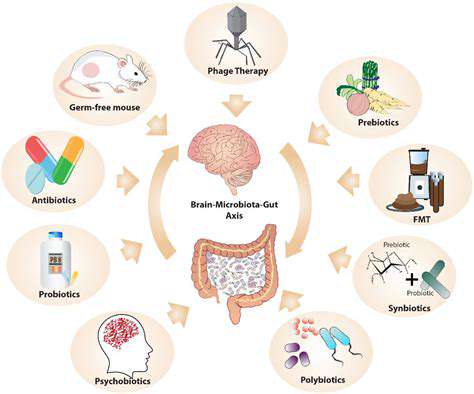
The Gut-Brain Axis and Mental Well-being
The fascinating interplay between intestinal microbes and neurological function represents one of modern medicine's most exciting frontiers. This biological dialogue involves constant chemical messaging between digestive bacteria and brain cells. These microbial influencers affect everything from our stress response to our ability to concentrate.
Scientific evidence confirms that microbial imbalances frequently accompany mood disorders. These disruptions can alter production of crucial brain chemicals like serotonin—approximately 90% of which originates in the gut. This startling fact demonstrates how directly our intestinal health impacts emotional stability.
Impact of Diet on Microbiome Composition
Nutritional choices serve as the primary architect of our internal microbial community. Standard Western diets high in refined carbohydrates and artificial additives tend to cultivate microbial profiles associated with inflammation and mood instability. Conversely, traditional Mediterranean or plant-rich diets promote bacterial diversity linked to emotional resilience.
Each bite we take essentially votes for which microbial species will thrive in our digestive ecosystem. This profound realization transforms ordinary meal choices into powerful tools for mental health maintenance.
Stress and the Microbiome
Chronic stress doesn't just affect our thoughts—it reshapes our gut bacteria in ways that can amplify anxiety. The stress hormone cortisol acts like weed killer for beneficial microbes while encouraging growth of potentially harmful strains.
Stress-induced microbial changes can alter production of GABA—the brain's primary calming neurotransmitter—demonstrating how psychological stress becomes biologically embedded through gut bacteria.
Probiotics and Prebiotics for Mental Health
Fermented foods and fiber-rich plants offer natural ways to cultivate mental health-supporting microbes. While research continues to identify specific strains with psychobiotic potential, current evidence suggests diverse, fiber-rich diets create the ideal conditions for mood-supporting bacteria to flourish.
The Future of Microbiome Research and Mental Health
Microbiome science is revolutionizing our understanding of mental health treatment. Future therapies may include personalized probiotic formulations or dietary plans based on individual microbial fingerprints. This emerging field promises to transform mental healthcare from symptom management to root-cause resolution.
The Future of Gut-Brain Research
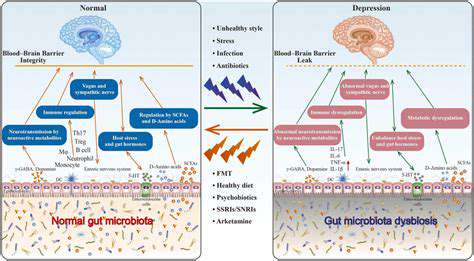
Unveiling the Intricate Link
Gut-brain science is shattering traditional boundaries between medical specialties. We're discovering that many neurological conditions may originate from or be exacerbated by digestive imbalances. This paradigm shift opens exciting possibilities for treating conditions ranging from autism spectrum disorders to Parkinson's disease through gut-focused interventions.
Pioneering studies reveal that gut microbes produce neurotransmitters, regulate inflammation, and even influence the blood-brain barrier's permeability. These findings suggest we've only begun to understand the gut's role in neurological health.
Personalized Medicine and Therapeutic Potential
The coming era of precision medicine will likely include microbiome analysis as standard practice. Imagine receiving dietary recommendations based on your unique microbial profile, or probiotics specifically formulated to address your individual mental health needs. This personalized approach could make current generalized treatments seem primitive by comparison.
Fecal microbiota transplantation—while currently used primarily for C. difficile infections—may eventually be refined for neurological applications. The potential to reset someone's microbial ecosystem could revolutionize treatment for various brain-related conditions.
Technological Advancements and Future Directions
Advanced DNA sequencing and artificial intelligence are allowing researchers to decode the incredibly complex language of gut-brain communication. These tools help identify which microbial metabolites influence specific brain functions, paving the way for targeted interventions.
Future research will likely focus on developing microbial biomarkers for early disease detection and creating nutraceuticals that precisely modify gut-brain signaling. We're moving toward an era where maintaining optimal gut health will be recognized as fundamental to preventing neurological decline.
As we better understand how lifestyle factors interact with microbial genetics, we'll develop more effective strategies for preserving cognitive function throughout life. This holistic approach promises to transform brain health maintenance from reactive treatment to proactive cultivation.
Read more about Understanding the Link Between Gut Health and Mental Health
Hot Recommendations
-
*Guide to Managing Gout Through Diet
-
*Best Habits for Financial Well being
-
*How to Build a Routine for Better Mental Health
-
*How to Eat Healthy on a Budget [Tips & Meal Ideas]
-
*Guide to Practicing Self Acceptance
-
*How to Incorporate More Movement Into Your Day
-
*Guide to Managing Chronic Pain Naturally
-
*Guide to Building a Reading Habit for Well being
-
*Top 5 Weight Loss Supplements That Actually Work
-
*Best Exercises for Postpartum Recovery [Beyond Abdominal Work]
